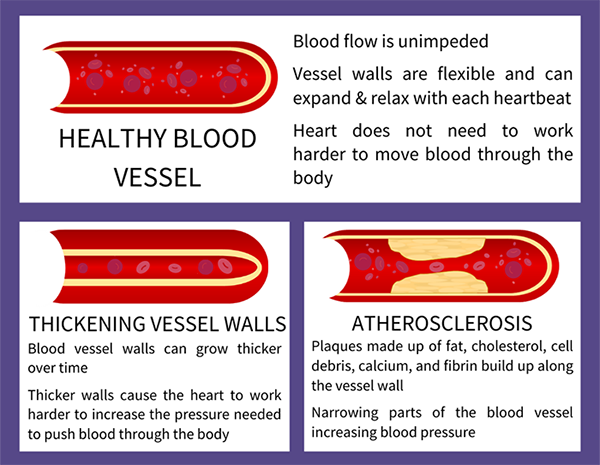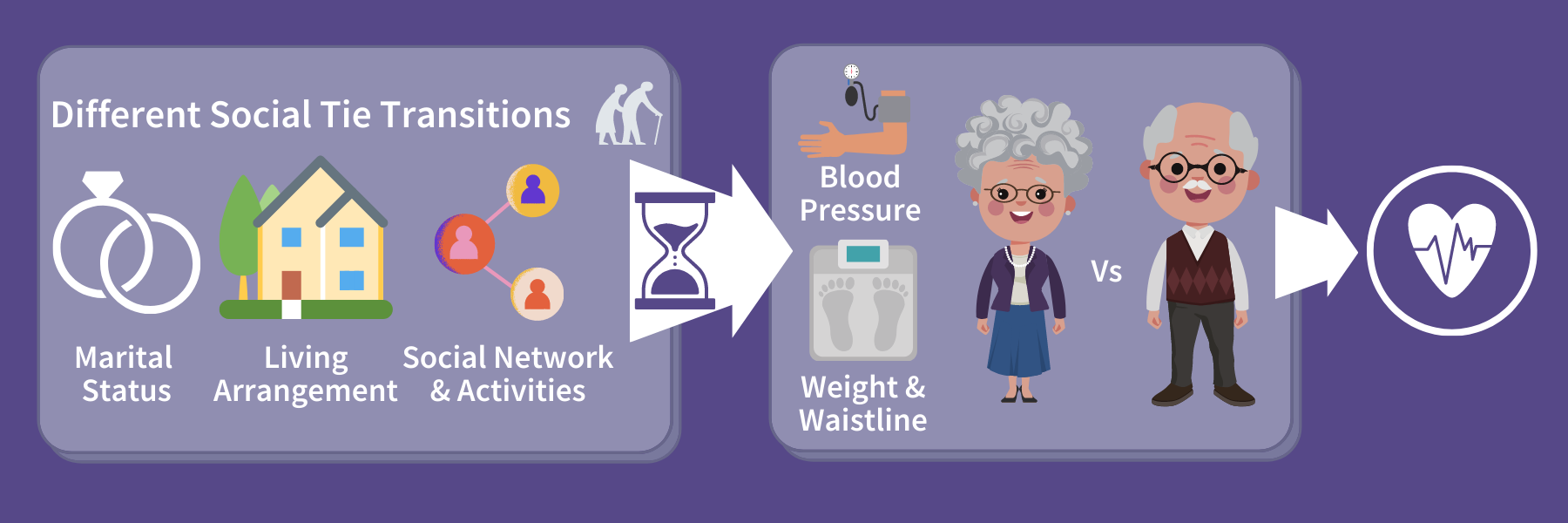As the body ages, there are a few health concerns that inevitably start emerging. One of the most prevalent is increased blood pressure, known as hypertension. In Canada, nearly six million adults have high blood pressure, with nine in ten adults developing hypertension during their lifetime.

Social ties impact health
The majority of research on hypertension focuses on diet and exercise; however, CHÉOS Scientist Dr. Annalijn Conklin has noticed a significant gap in the literature.

“We know that diet plays an important part in a person’s health, but eating is as much a social event as it is a nutrition event. Humans have multiple social patterns that influence their lifestyle, which needs to be considered in preventing and managing disease.” Dr. Conklin explains, “Previous literature has narrowly focused on marital status — either married or not married — when in fact, someone who is not married experiences a mix of very different statuses. Never being partnered is quite different from being widowed or separated. Acknowledging these distinct categories when looking at marital status, and evaluating them separately for women and men, adds important nuance in research.”
The significance of this work was recognized by the Canadian Institutes of Health Research, which awarded Dr. Conklin, along with co-investigators and CHÉOS Scientists Drs. Nadia Khan and Karin Humphries, a Fall 2021 Project Grant. This work was also awarded 2022 Grant-in-Aid funding for two years from the Heart & Stroke Foundation. The project, titled Multiple social tie transitions and their impact on cardiometabolic risk factors in aging women and men (MORE), looks at the importance of social connectedness in promoting healthy aging in adults and considers possible differences between men and women. For example, an evaluation of social network size will include information on the number of social contacts an older person sees regularly (once a month or more).
This project is a continuation of Dr. Conklin’s recently published work looking at social connections and hypertension in men and women, using data available from the Canadian Longitudinal Study on Aging. The longitudinal study is following more than 50,000 participants for the coming 20 years and has collected a wide variety of data at two time points to date, including lifestyle factors, health information, and social factors such as personal support networks.

Gender and social nuances
Inspiration for Dr. Conklin’s work came from a general absence of medical research on women.
“When looking at chronic illness, such as hypertension, and the associated social determinants, we often don’t consider socioeconomic factors that may influence men and women’s health differently,” says Dr. Conklin. “If we’re going to improve women’s heart health and gender equity in medicine, we need to have disaggregated data and look at it and understand it. When data from both genders or from different social situations are pooled together, nuanced information that can lead to better health decisions through more targeted interventions for both men and women can get lost.”
Dr. Conklin is interested in understanding if and how social ties change over time can have a significant impact on blood pressure as well as excess body weight, another health concern tied with aging. Their work is building on earlier research that indicates there could be a direct link, possibly through stress responses, and this may affect men and women differently.
“Being single, having limited social participation or a smaller social network were each associated with greater odds of having hypertension, especially in women, since these parameters showed little effect on blood pressure in men,” clarifies Dr. Conklin. “So this new project is looking at if and how transitions in these social structures are linked to rising hypertension and gaining excess body weight differently in men and women.”
Preliminary findings and anticipated outcomes
An early finding of this work that surprised Dr. Conklin was that the simple existence of various social relationships mattered more than the quality of the relationships. These strong associations early on in the work are why they are focusing on social structures rather than on perceived social support.
So what are the anticipated project outcomes?
Dr. Conklin responds, “I think that different social ties will have an effect on both hypertension and excess body weight and it will be distinct between women and men.” They continue, “In which direction and for whom? I’m not sure because there is currently too little sex and gender research to have a clear idea of the influence social ties and gender will have. A broader understanding will come from a complex picture tied to the cultural meaning of these social ties. It’s not a simple lab value. There are definitely societal implications, regardless of how the results end up.”
With the research team ultimately aiming to impact real-world outcomes, Dr. Conklin is working closely with the Providence Senior Care Program and Beyond the Conversation, a national non-profit organization focused on reduced social isolation. Both partners have been providing useful insights throughout the project development and implementation process. They intend to share the project results to inform and engage the community.
Want more information on hypertension in Canada and how to keep your blood pressure healthy? Learn more from Heart & Stroke.



